ADB Strengthens the Fijian Justice System’s Response to Gender-Based Violence
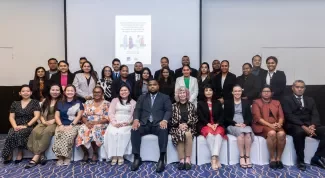
From 23 October to 7 November, and from 15 to 20 December, ADB delivered a series of six workshops in Nadi, Fiji, focused on selected issues concerning gender-based violence (GBV) offenses. The sessions brought together all the public defenders from the Legal Aid Commission (LAC) and prosecutors from the Office of the Director of Public Prosecutions (ODPP). With the full-scale participation from these offices, the workshops established baseline knowledge, tools, and strategies needed to handle GBV cases with rigor and fairness.
In their opening remarks, ADB, LAC, and ODPP officials examined the context surrounding the commission of GBV offenses in Fiji, and the challenges faced by public defenders and prosecutors when handling cases involving women and children.
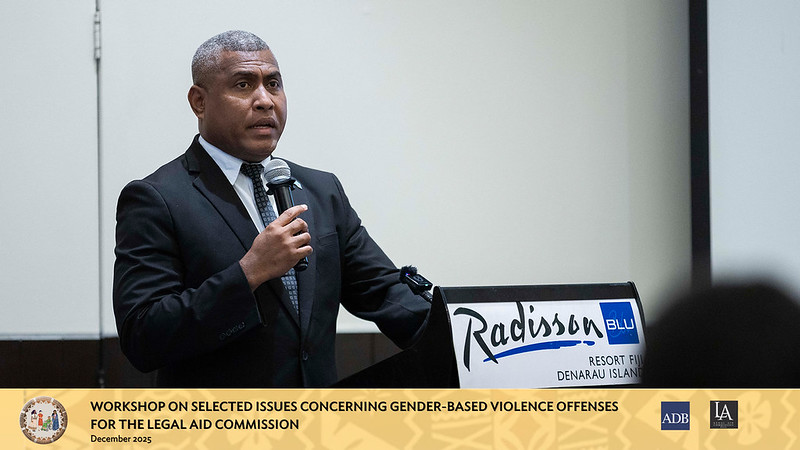
LAC Director Seremaia Kurulo Waqainabete spoke of the prevalence and gravity of the issue: “Gender-based violence is a very serious offence, whether it be rape, sexual assault, verbal abuse [or] physical abuse. It is a common occurrence in our community, society, [and] country.” He then urged attendees to treat the ADB-facilitated training as an opportunity to confront their unconscious biases that can hamper justice and force traumatized women and children to needlessly relive their painful experiences.
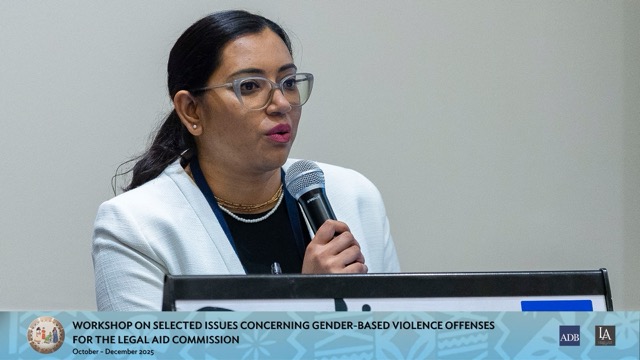
Meanwhile, LAC Assistant Director Swarvana Prakash noted the complications introduced by family dynamics: “All too often we hear that the complainants wish to withdraw their cases because the perpetrators are their sole providers or that we should not intervene in a domestic assault because it is a private matter between a husband and a wife. We hope to learn more about the sociocultural norms in Fiji communities so that we develop a better perspective when assisting our clients.”

ODPP Assistant Director Meli Vosawale highlighted parallel obstacles, including reluctance to testify against family members or financial providers, interference by offenders, gaps in victim support systems, and delays in adjudicating GBV cases.
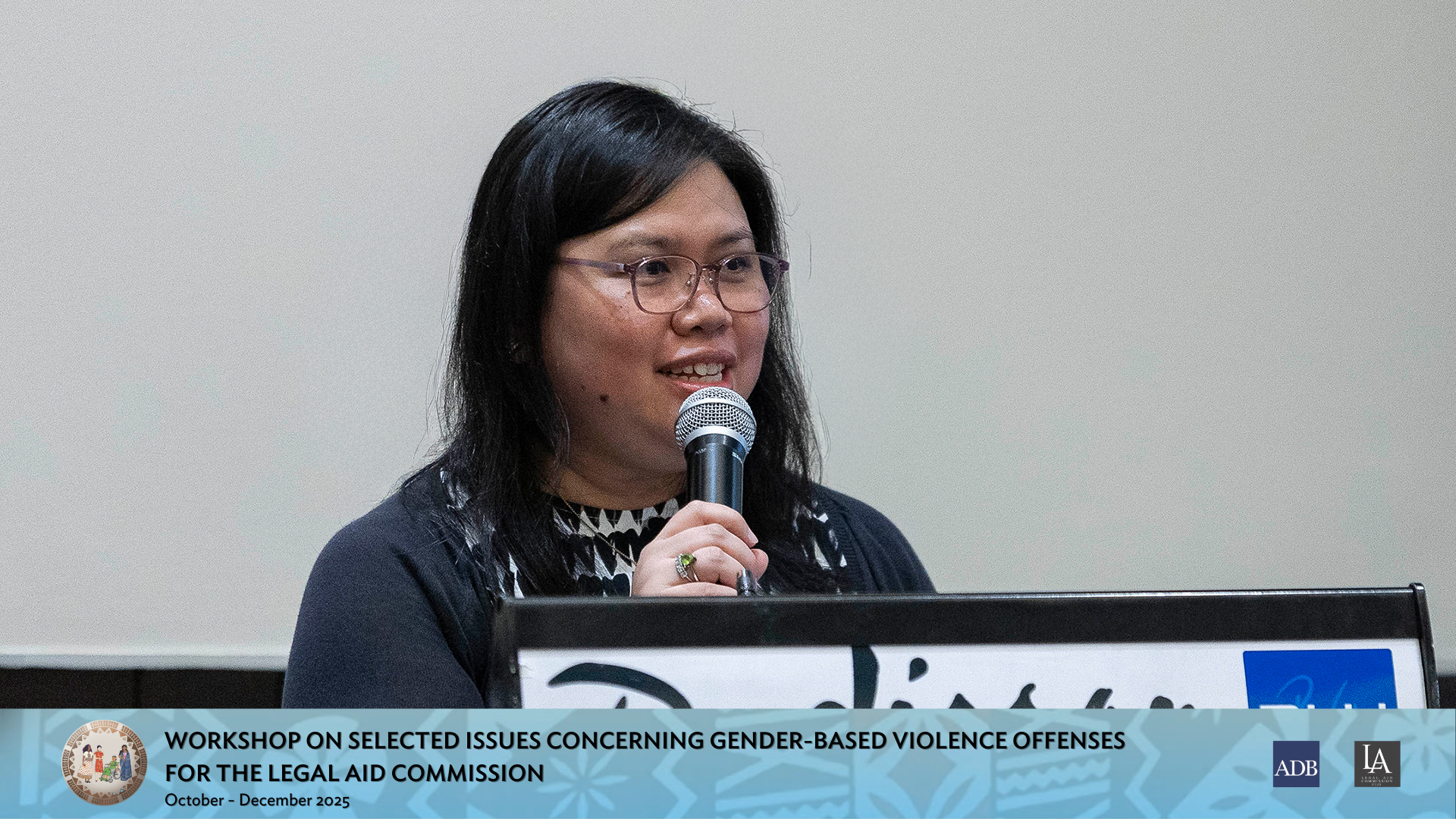
ADB Counsel Maria Cecilia T. Sicangco acknowledged Fiji’s progress in reforming GBV-relevant legislation, but highlighted the gap between law and practice. “Fiji has already taken important legislative steps to address gender-based violence through the Domestic Violence Act 2009, the Crimes Act 2009, and related national policies and action plans. Yet the challenge remains in translating these laws into practice, ensuring simultaneously that: victim-survivors and witnesses are treated with dignity, safety, and respect; and those accused receive a fair trial with their constitutional rights fully protected.”
Since 2024, a multidisciplinary team of ADB experts has been supporting Fijian law and justice institutions in strengthening legal and judicial practice. The team consists of Robyn Layton, a former Supreme Court Justice in South Australia and expert in gender-sensitive approaches to women and children in court proceedings; Samar Minallah Khan, a behavior change and gender specialist; Julia Davey, a seasoned barrister specializing in gender and juvenile justice issues; and Siteri Nasa Navia, a former Fijian state prosecutor recognized by ODPP as “Prosecutor of the Year” in 2017 and who also investigated GBV crimes amounting to international crimes committed by the Islamic State group in Iraq. On GBV, the ADB team designed a seven-module training program that featured actual cases in Fiji and international best practices. The workshop also includes course materials—a training manual, videos, and handouts—that facilitate understanding and continued learning.
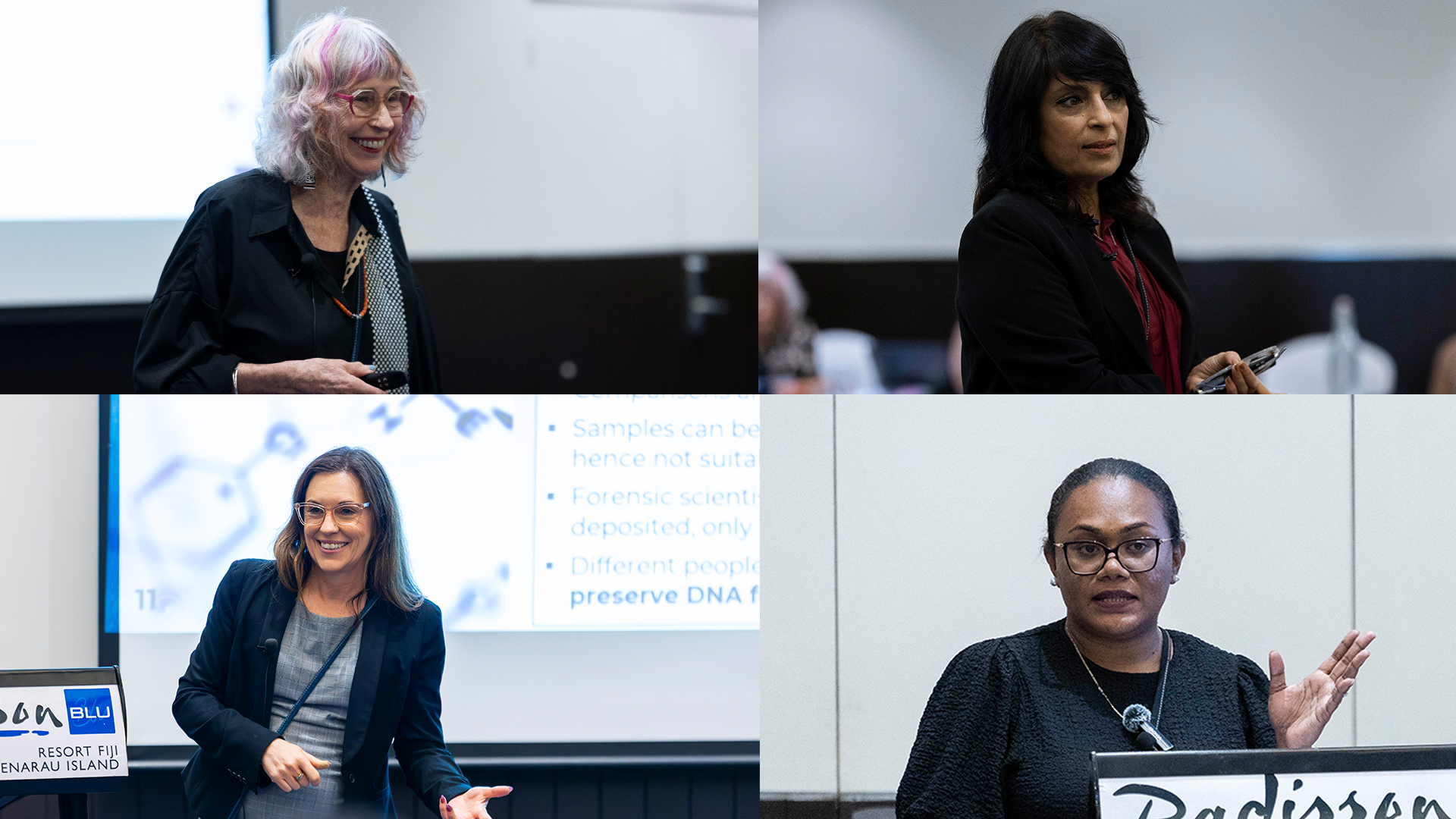
Across the workshops, 162 participants deepened their understanding of the socio-cultural dimensions of GBV, including bulubulu, a customary reconciliation practice that can lead communities to prioritize reconciliation over justice. They also examined the nature of rape and sexual offenses, domestic violence laws, evidentiary issues such as DNA collection and trauma indicators, the relationship between stress and ethical decision-making, and sentencing regimes including the use of diversion courts. The final module, a role-play simulation, enabled participants to apply their learning in realistic scenarios, with facilitators providing feedback on legal reasoning, objectivity, and survivor sensitivity.
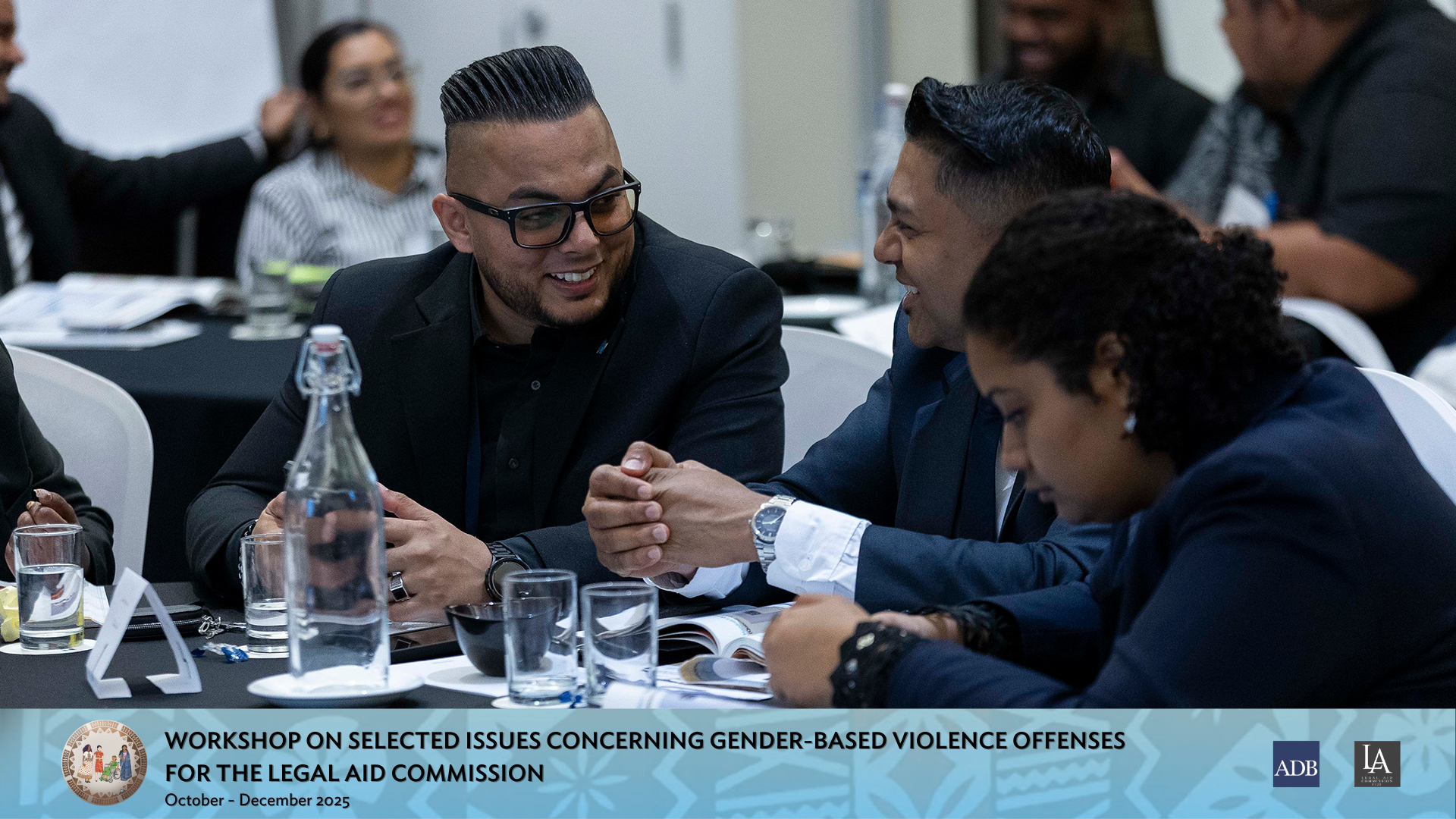
The sessions resonated strongly with participants. ODPP Principal Legal Officer Luisa Latu reflected: “We can be very judgmental as prosecutors. As soon as a victim comes to the office, just by reading through the statements, we think, ‘Okay, this is not a credible witness. I don't think I can go ahead in court, leading this witness evidence in court.’ These [workshops]…really helped us [realize that] not only do we have to be legalistic, we also need to be human in order to understand what everybody is going through in life.”
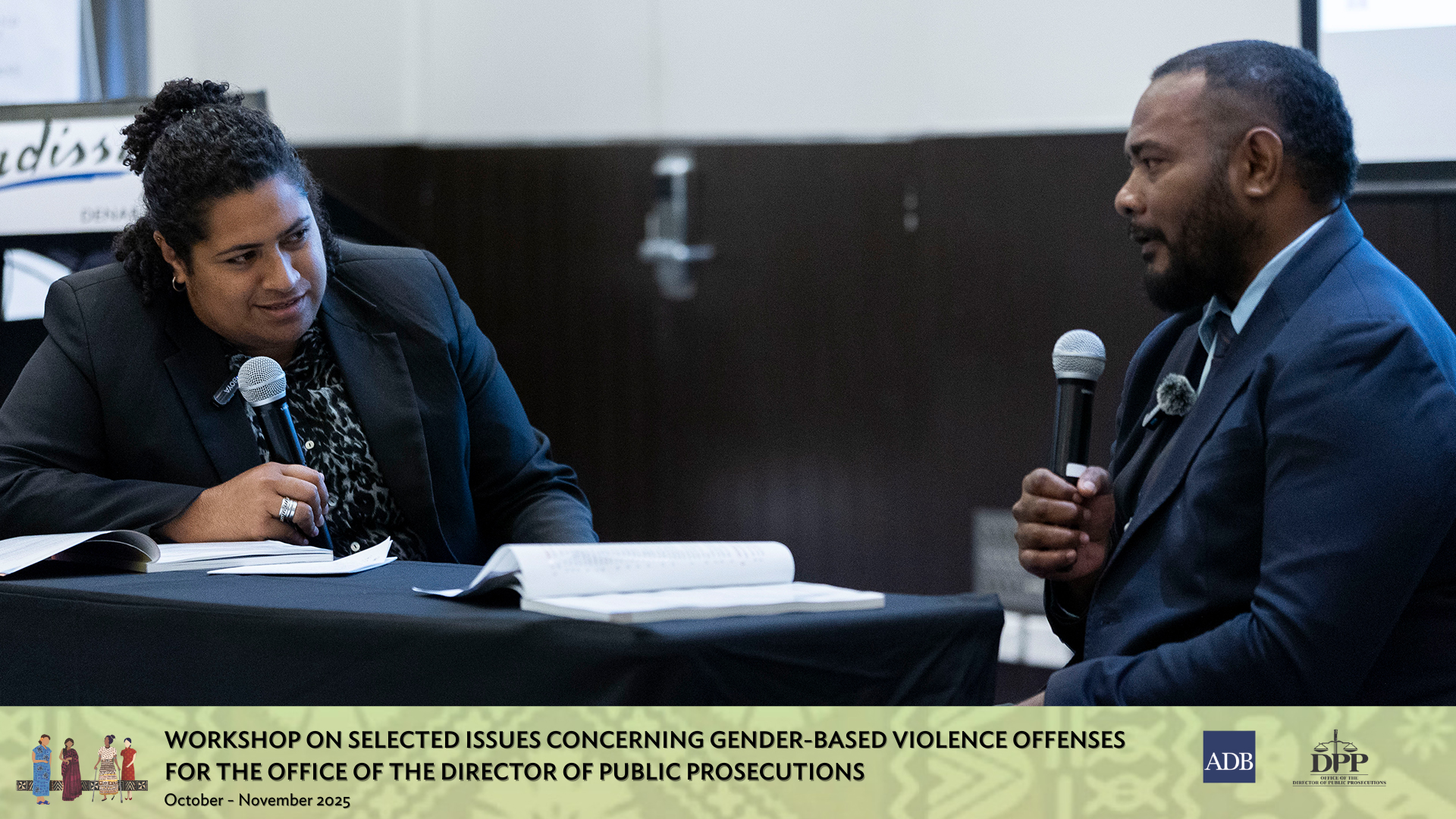
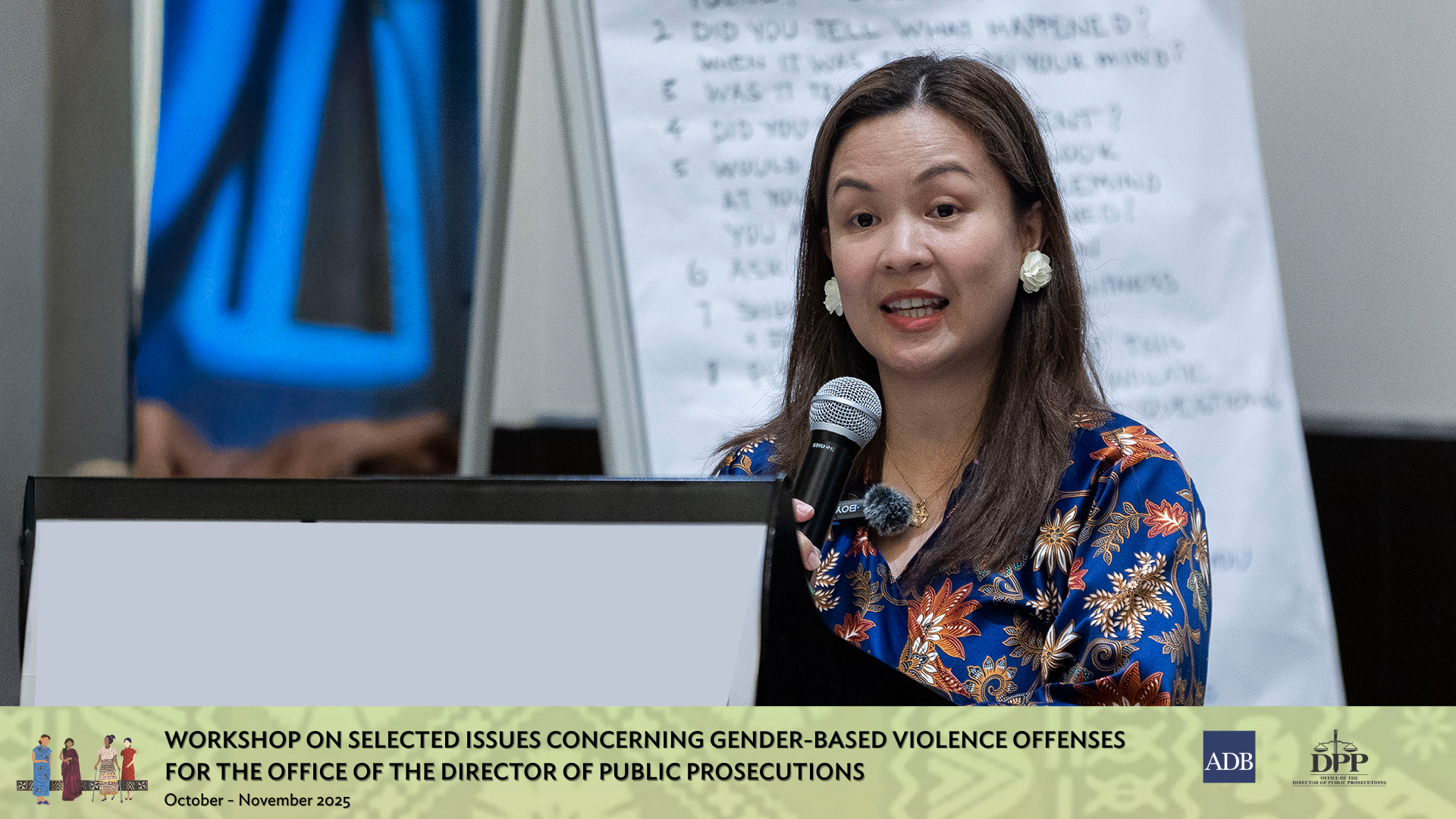
In her closing remarks, Gee Ann Carol D. Burac, ADB Legal Operations Administrator, echoed this sentiment, reminding participants that “Empathy is core to effective advocacy. A refined understanding of survivor trauma empowers us to approach each case with the humanity it demands, while upholding fairness and justice.”
This latest series of workshops builds on ADB-led training for the entire Fijian judiciary in August 2024, ODPP prosecutors in December 2024, and LAC staff in March 2025. Reflecting ADB’s whole-of-sector approach to strengthening Fiji’s justice system, the initiative targeted and reached all key actors across the whole judicial chain. The support was delivered through the ongoing Promotion of Gender-Responsive Judicial Systems Technical Assistance, implemented by the Law and Policy Reform Program of ADB’s Office of the General Counsel.

